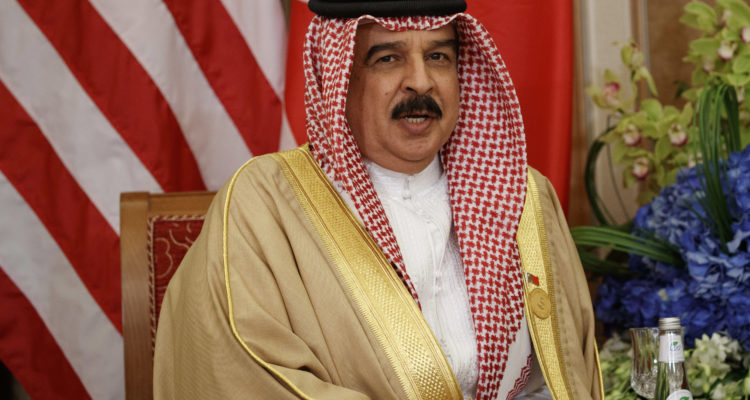“Opening direct dialogue and ties between these two dynamic societies and advanced economies will continue the positive transformation of the Middle East…” said a joint statement from Israel, Bahrain, and the U.S.
By Ebin Sandler, World Israel News
On Friday, Israel and Bahrain announced their intention to establish diplomatic ties in a joint statement delivered at the White House.
The announcement arrived about a month after the United Arab Emirates (UAE) became the first Gulf nation to forge open ties with the Jewish state.
U.S President Donald Trump announced the Israel-Bahrain agreement on September 11, a day on which Americans honor those who perished in terror attacks in New York and Pennsylvania on that date 19 years ago.
“There’s no more powerful response to the hatred that spawned 9/11 than this [peace] agreement,” Trump commented to reporters gathered at the White House.
Trump issued the comments after a joint call with Israeli Prime Minister Benjamin Netanyahu and Bahrain’s King Hamad bin Isa Al Khalifa.
The three heads of state also released a joint statement on the accord, which was announced in the run-up to an event at the White House during which Israel and the UAE will formalize the peace agreement they announced in August.
It appears that Bahrain will join the ceremony for the “Abraham Accords,” which will be held on September 15 and will be attended by Netanyahu and UAE Foreign Minister Abdullah bin Zayed, in addition to other foreign dignitaries.
The Abraham Accords mark a major milestone in the Middle East, with the UAE and Bahrain joining Egypt and Jordan in a growing club of Arab countries with official diplomatic relations with Israel.
While Bahrain is the latest Muslim-majority country to express its desire to advance diplomatic ties with Israel, Sudan and Kosovo also communicated their openness to establish relations with Israel.
Kosovo’s rival Serbia also recently announced it plans to move its embassy from Tel Aviv to Israel’s capital, Jerusalem.
Israel’s ability to bridge the gap and make peace with its Arab neighbors has been roundly condemned by Iran, which seeks Israel’s destruction and threatens Gulf nations like Saudi Arabia.
Iran’s Islamic Revolutionary Guard Corps blasted Bahrain o Saturday, referring to its decision to sign a peace agreement with Israel as a “threat to security in West Asia and the Muslim world,” the Associated Press reported.
The Palestinians also slammed the Abraham Accords, with leadership and Palestinian Authority-controlled media referring to the peace deals as a betrayal of their cause.
Senior Palestinian official Wasel Abu Yousef called the Israel-Bahrain agreement “another stab in the back,” adding that the Palestinians “see absolutely no justification for free normalization with Israel.”
Conversely, Netanyahu and King Hamad called the agreement “a historic breakthrough to further peace in the Middle East.”
“Opening direct dialogue and ties between these two dynamic societies and advanced economies will continue the positive transformation of the Middle East and increase stability, security, and prosperity in the region,” said a joint statement from Israel, Bahrain, and the U.S.
“The region is responding very favorably to the UAE deal and hopefully it’s a sign that even more will come,” senior White House adviser Jared Kushner told the AP.
The move by UAE and Bahrain represents a turning point in Israel’s relations with Arab nations, which previously conditioned peace agreements on the Palestinians resolving their conflict with the Jewish state.
Critics of the PA have long claimed that the Palestinians sabotage their own cause, maintaining a steadfast commitment to rejectionism during previous negotiations.





